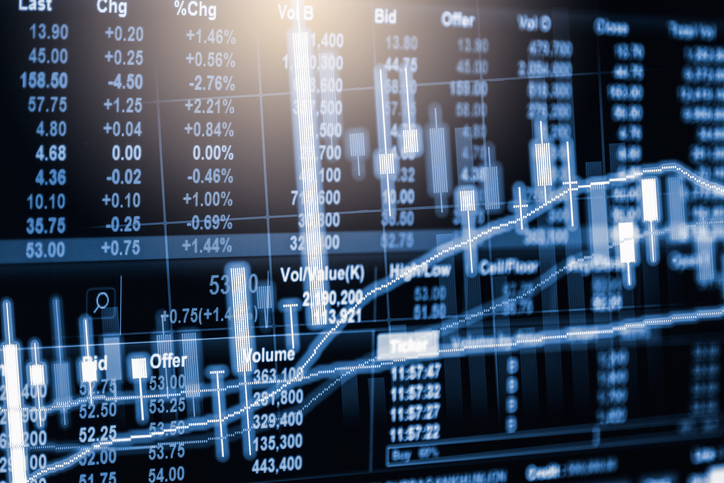ii view: emerging markets manager Ashmore keeps nice dividend
A play on growth in the developing world and a dividend yield of over 4%. Buy, sell or hold?
3rd September 2021 11:38
by Keith Bowman from interactive investor
A play on growth in the developing world and a dividend yield of over 4%. Buy, sell or hold?

Full-year results to 30 June 2021
- Assets under management (AuM) up 13% to $94.4 billion
- Adjusted net revenue down 9% to £296.6 million
- Adjusted EBITDA down 12% to £195.7 million
- Pre-tax profit up 28% to £282.5 million
- Final dividend flat at 12.1p per share
- Total dividend for the year unchanged at 16.9p per share
- The group has no debt
Chief executive Mark Coombs said:
"Ashmore has made significant progress against its strategic objectives over the past year, generated outperformance for clients, and the Group's robust business model has delivered a financial performance that reflects the early stages of a cyclical recovery.
“Ashmore's investment performance track record positions the firm well to capitalise on the significant opportunities available across the diversified Emerging Markets."
ii round-up:
Specialist emerging markets fund manager Ashmore Group (LSE:ASHM) today reported an increase in Assets Under Management (AUM) as it benefited from global economic recovery following the worldwide pandemic.
AUM rose by 13% to $94.4 billion, aided by a $9.6 billion positive investment performance and the net inflow of $1.2 billion of funds. Pre-tax profit rose 28% to £282.5 million, helped by its own investments in seed capital programmes, although adjusted earnings (EBITDA) marginally missed analysts’ forecasts, falling 12% to £195.7 million.
Ashmore shares fell by more than 5% in UK trading, having gained around a fifth since pandemic induced market lows in March 2020. Shares for larger rival Schroders (LSE:SDR) are up by around 70% in that time, while shares for similar sized Man Group (LSE:EMG) have almost doubled.
Accompanying management outlook comments pointed to an initial lag in vaccination rates in the developing world, but with a recent acceleration now raising hopes for them to match levels achieved in developed countries by the end of 2021.
Ashmore invests in asset classes including sovereign and corporate debt, equities, and real estate across the Emerging Markets arena on behalf of its institutional and retail clients.
The retreat in adjusted earnings (EBITDA) came as net revenue fell 9% to £296.6 million, hindered by factors including changes in the client mix and reduced exposure to higher profit margin retail clients and rolled-over institutional mandates at lower fees.
A final dividend payment of 12.1p per share mirrors the payment made this time in 2020 and leaves the total payment for the year unchanged at 16.9p per share.
ii view:
Established over two decades ago, Ashmore Group is today a specialist emerging markets fund manager with a UK stock market value of over £2.5 billion. Most of its investments are made across the debt markets, with less than 10% in equities and around 1% in alternatives. In geographical terms, 37% are invested in Latin America, 25% in Asia Pacific, 19% in the Middle East and Africa, and 19% in Eastern Europe.
For investors, the fall in both adjusted revenue and earnings points to room for improvement. A net outflow of $2.9 billion from intermediary retail clients was suffered in this latest year, and the growing use of low-cost ETFs offers increased competitive pressure on management fees. A backdrop of ultra-low interest rates and potential rate rises from central banks is also a tough one for a predominant bond manager – bond prices usually fall as interest rates rise.
That said, Ashmore’s specialisation in emerging markets is not to be forgotten. Although higher risk, growth prospects in the developing world should prove ahead of the now largely highly indebted developed economies. Ashmore’s performance remains strong, with 96% of AUM outperforming their benchmarks over one year and group operating costs falling by 6%. No group debt and a dividend yield of over 4% is also not to be ignored. In all, while more cautious investors may wish to wait for an uptick in underlying financial metrics, income investors with an established holding might be rewarded for their patience.
Positives:
- Strong investment performance
- Attractive dividend (not guaranteed)
Negatives:
- Uncertain economic outlook
- Fee pressure from increased tracker funds
The average rating of stock market analysts:
Hold
These articles are provided for information purposes only. Occasionally, an opinion about whether to buy or sell a specific investment may be provided by third parties. The content is not intended to be a personal recommendation to buy or sell any financial instrument or product, or to adopt any investment strategy as it is not provided based on an assessment of your investing knowledge and experience, your financial situation or your investment objectives. The value of your investments, and the income derived from them, may go down as well as up. You may not get back all the money that you invest. The investments referred to in this article may not be suitable for all investors, and if in doubt, an investor should seek advice from a qualified investment adviser.
Full performance can be found on the company or index summary page on the interactive investor website. Simply click on the company's or index name highlighted in the article.